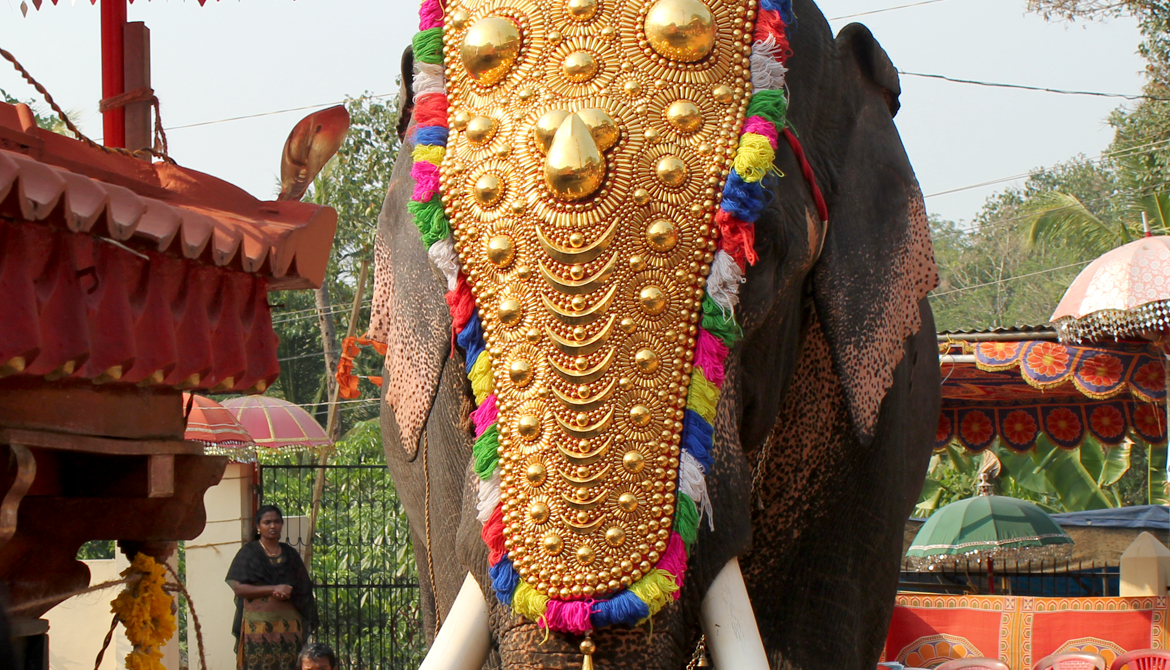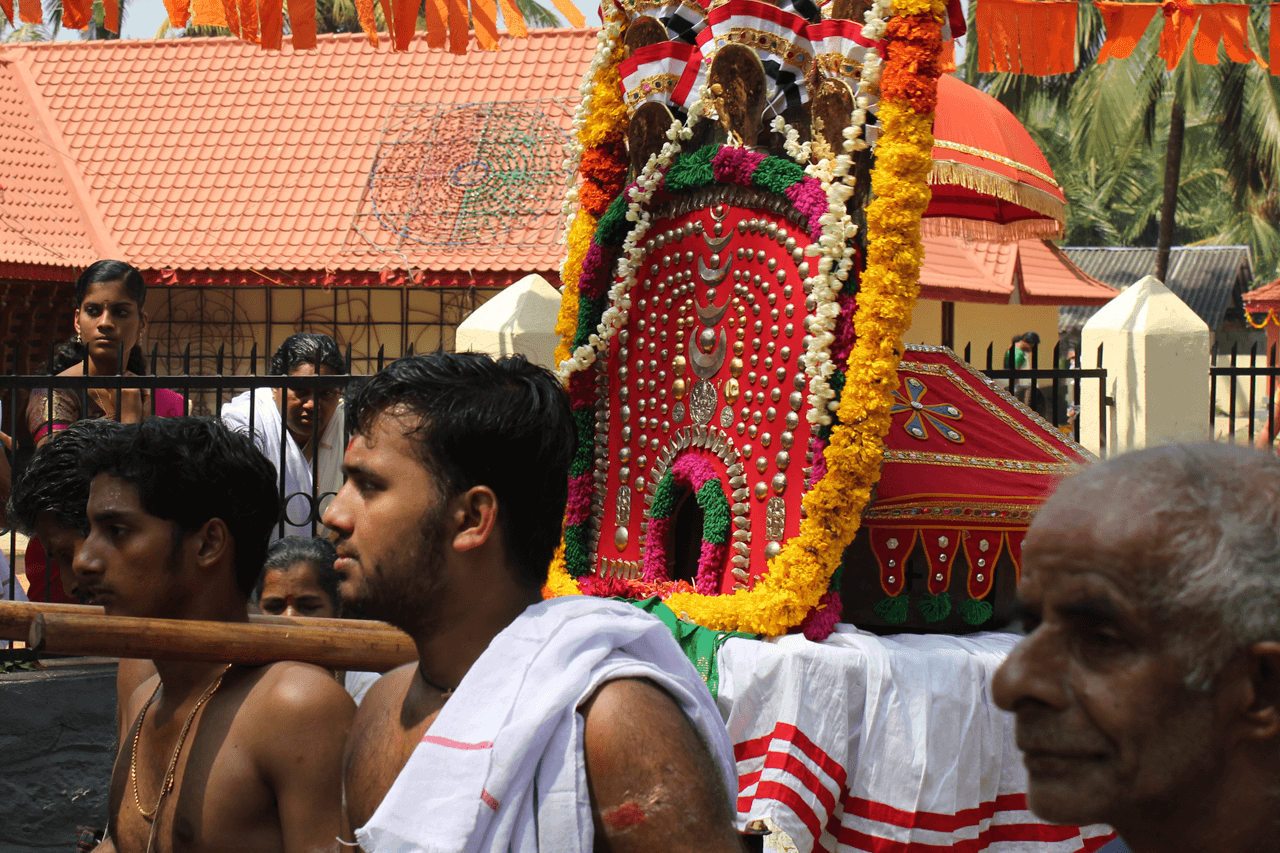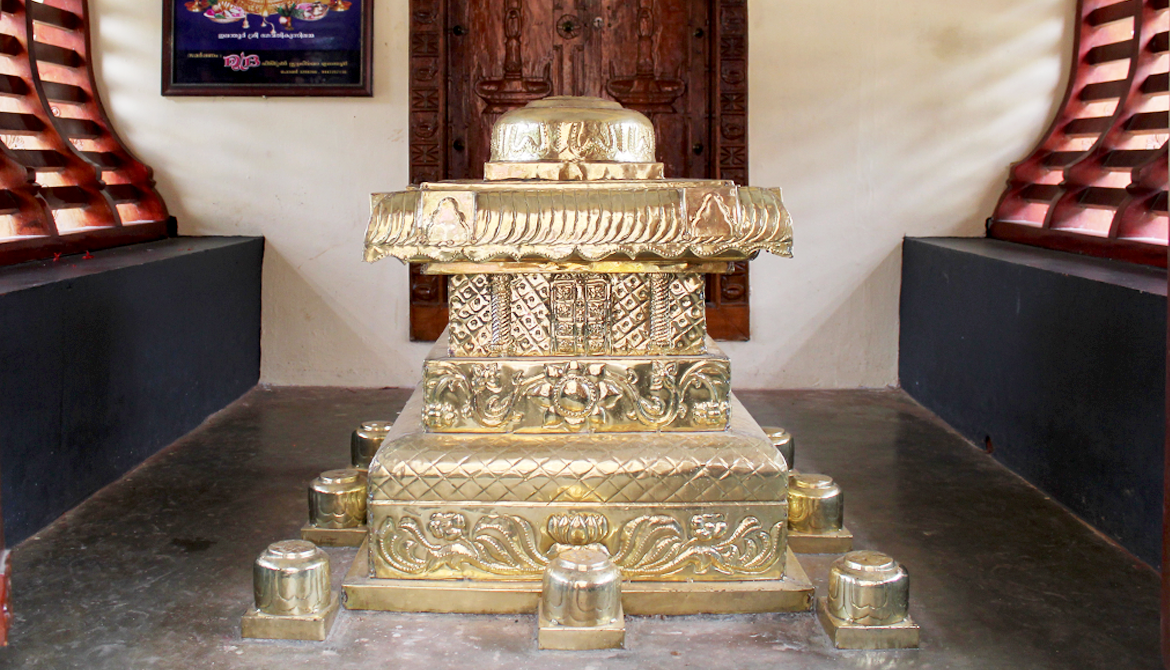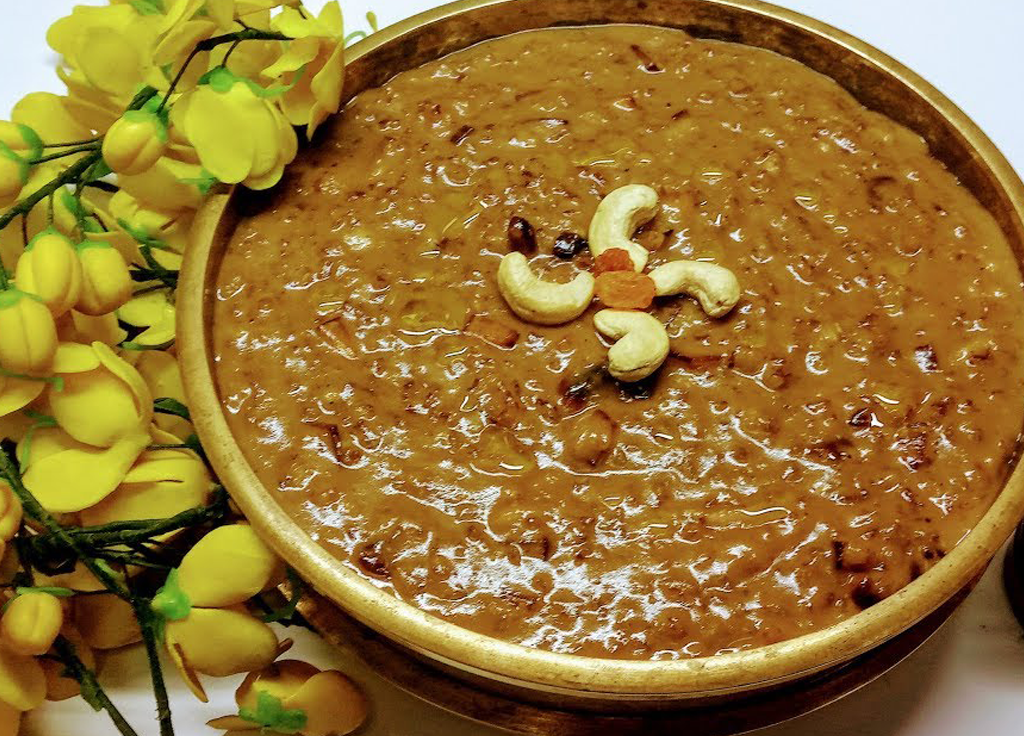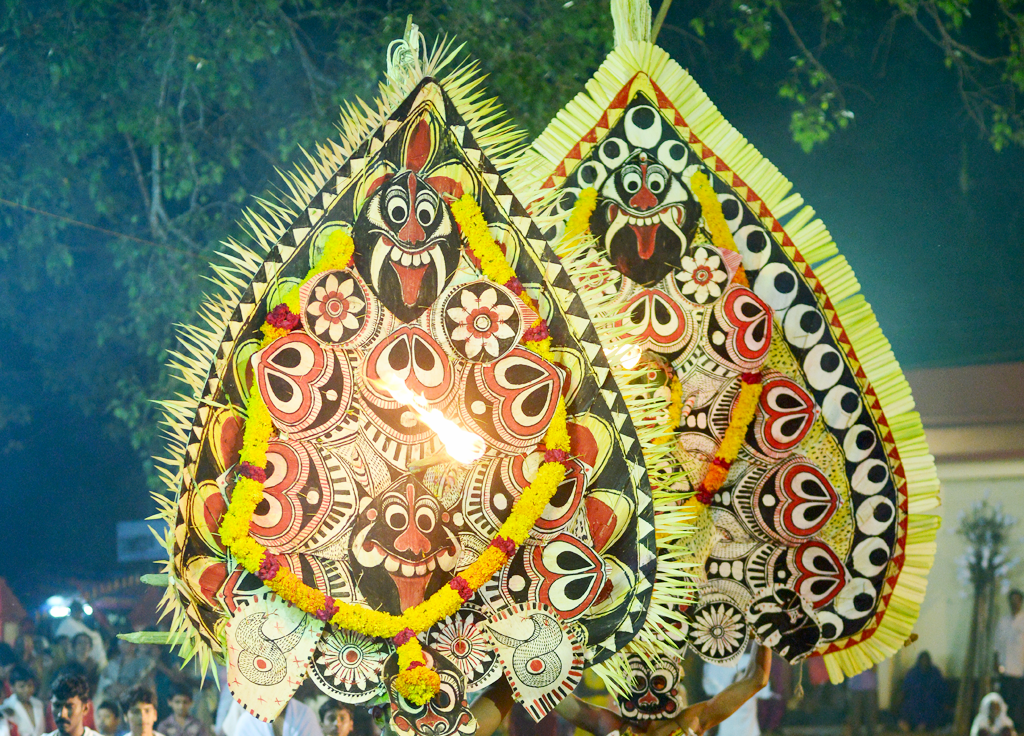It is celebrated in the Malayalam month of Kanni (the period when the sun stands on the sign of Virgo). The nine day festival includes “Devi Bhagavatha Sapthaham”, special pooja performances, Deeparadhana in the evening, Bhajans, Discourses, and varied cultural programmes.
Navarathri is a festival dedicated to the worship of Devi Durgga. The word Nava Rathri means nine nights in Sanskrit. During the nine days of Nava Rathri nine forms of Devi are worshipped. The tenth day is celeberated as Vijaya Deshami or Dessehra-the nine forms of Shakthi are Durgga, Kali, Amba, Annapoorna Devi, Sarvamangala, Bhairavi, Chandika, Lalitha, Bhavani and Mookambika.
Bhadrakali or ‘Good Kali’ is a Hindu Goddess popular in Southern India, in Devi Mahatmyam Bhadrakali is depicted as one of the fierce forms of the great Goddess (Devi). In Kerala Temples Bhadrakali is worshiped as Sri Bhadrakali and ‘Karimkali Moorthy Devi’. She is mostly represented three eyes, and four, twelve or eighteen hands. She carries a number of weapons (kapalam, sword and panapathram). She is also seen with flames flowing from her head small tusk protruding from her mouth. Kodungalloor Bhadra Kali temple is one of the most famous temple in Kerala dedicated Bhadrakali. It is believed that the versatile Sanskrit poet Kalidasa became what he was thanks to the Devini will of Bhadrakali. It is also believed that Vikramaditya and his brother Bhatti were ordent devotes of Bhadrakali whose blessing resulted in all the successes showered upon them. Many martial arts like Kalaripayat (a traditional martial arts forms and kalari are associated with Bhadra Kali).
The beginning of spring and the beginning of autumn are considered as the sacred opportunities for the worship of the divine mother Durga. In Hindu mythology Navarathri represents the celebration of the Goddess Amba (Power). In South India Navarathri, the nine- night festival honors Durga, Goddess Lakshmi and Saraswathi. In Kerala and Tamil Nadu it is known as Navarathri and Bommla Koluvu in Andhra Pradesh. The date of Navarathri is from 25th September to 3rd October. Navarathri observed is Dasshera in Karnataka, where it is celebrated for ten days. The main event during Navarathri in South India is the display of dolls and idols-KOLU and the placing of kalash which represents Goddess. During Navarathri, we invoke the energy aspect of God in the form of Universal Mother, commonly referred to as Durga. She is also referred to as Devi or Shakthi (Power). The nine manifestations of Goddess Durga are Rudra, Chanda, Prachandha, Chandogra, Chandanayika, Chandapati, Chandaroopa, Durga and Saraswathi. It is with the help of this energy that God proceeds with the work of creation, preservation and destruction. Our worship of Shakthi reconfirms the energy is imperishable. It cannot be created or destroyed. The last three days of Navarathri, i.e., Durgashtami, Maha Navami and Vijaya Deshami are celebrated as Saraswathi Pooja and they are considered more sacred than other days for Devi worship.
In Kerala, Saraswathi Puja and Ayudha Puja are performed. On the Durgashtami day a ceremony called “Poojavaipu” is performed in the evening. On the Vijaya Deshami day after Pooja in the morning, the books and implements are taken out from the pooja room and this ceremony is called “Poojayeduppu”. Vijaya Deshami day marks the beginning of learning and work. At this auspicious moment, the tots are for the first time, given instructions to write the first few alphabets on rice or sand. Thus they are ushered into the world of knowledge. This is called ‘ezhuthiniruthu’ or ‘vidyarambham’.
Saraswathy Temple, also known as Dakshina Mookambika, in the Panachikkadu village of Kottayam district, Kerala, is significantly noted. Even though, many Saraswathy Temple perform pooja only during the Navarathri period. This Temple offers pooja throughout giving “darshan” to the devotees. The Mookambika Devi temple at Kolloor, Uduppi district in State of Karnataka, India, is a Hindu temple dedicated to Mookambika Devi. Here, Parvathy is worshiped as Parvati Devi. The establishment of the temple is attributed to Parameswara (Lord Siva) who has brown a chakra with his toe. On Durgashtamiday special poojas like suvani or suhasini pooja are performed at the Lord Aiyyappa Temple at Sabarimala. Devotees from far and near visit the Aiyyappa Temple on the auspicious day.

